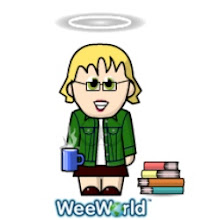As we returned, we encountered a number of our tour group heading off through towards the Damascus Gate, so we joined them. The souk was almost closed, just a few traders were still open, so we had a relatively unencumbered walk through the centre to the Church of the Holy Sepulchre and back.
 It was interesting to see how such narrow confined spaces are used, especially the areas above eye level.
It was interesting to see how such narrow confined spaces are used, especially the areas above eye level.
Returning towards Damascus Gate, we stopped at a cafe for a beer. The corrugated roof acts as a sunshade during the day. Outside this cafe you can see the narrow tractor that pulls the refuse cart. They drive fast through the alleys and create a lot of noise from the engine and the shouts of warning by the driver. All this noise echoes off the narrow walls and metal rooves; along with the smell of rotten vegetables being swept up, and dirty water running over the paving stones it reminded me of St Albans market at night when that is being cleared up and cleaned.
Several elements made this 'not like Blighty'. The first was the two young soldiers stationed outside the cafe. (Military service is required for all young people, and I was later told that they have to buy parts of their own uniform. We saw a lot of young soldiers in many different places, and they seemed to be used as a peudo Police force in places.)

One soldier was happy to pose for the photograph, but his colleague seemed a bit concerned. I wondered whether the happier lad was more familiar with the counter-cultural ways of tourists, but we didn't have a language in common, so communication was limited to smiles. The other lad did smile eventually - after I'd proved my camera was only a camera.
 The cafe was run by a Palestinian, and the proprieter posed for a photograph later. He later insisted on a picture of himself with the Venerable and me.
The cafe was run by a Palestinian, and the proprieter posed for a photograph later. He later insisted on a picture of himself with the Venerable and me.From being a bit reticent when we first arrived, Mr Himo reacted very positively as soon as he saw our Venerable leader's clerical collar and made a great show of hospitality, bringing us groundnuts, microwave popcorn and a strong liquorice liqueur in addition to the beers that we ordered. He kept telling us that we must honour the 'Father', and I wondered again whether the fact that we were behaving quite informally was challenging to him. On the other hand, he was obviously happy to have a reasonable amount of trade 'drop in' unexpectedly.
Despite being strangers 14 hours before our group soon started to get to know each other.  It was an atmospheric evening; not just the smell of drains that wafted across at intervals, but seeing the range of goods for sale (shirts and bananas at the next shop), but also the cafe decorations that we don't see often; the oil table lamps and tiled table surfaces. A hubbly bubbly sat in a corner (sorry, I didn't manage to get a picture of that one).
It was an atmospheric evening; not just the smell of drains that wafted across at intervals, but seeing the range of goods for sale (shirts and bananas at the next shop), but also the cafe decorations that we don't see often; the oil table lamps and tiled table surfaces. A hubbly bubbly sat in a corner (sorry, I didn't manage to get a picture of that one).


 It was an atmospheric evening; not just the smell of drains that wafted across at intervals, but seeing the range of goods for sale (shirts and bananas at the next shop), but also the cafe decorations that we don't see often; the oil table lamps and tiled table surfaces. A hubbly bubbly sat in a corner (sorry, I didn't manage to get a picture of that one).
It was an atmospheric evening; not just the smell of drains that wafted across at intervals, but seeing the range of goods for sale (shirts and bananas at the next shop), but also the cafe decorations that we don't see often; the oil table lamps and tiled table surfaces. A hubbly bubbly sat in a corner (sorry, I didn't manage to get a picture of that one).


 Apart from the presence of soldiers, and the mixed faiths and races around us, it became immediately apparent that political neutrality is an impossibility in this place. For instance, there was a choice of beers; Maccabee beer or Taybeh beer. One is Israeli, one is Palestinian. Later in the pilgrimage we ordered Maccabee from a Jewish hotel. As this was a Palestinian bar, it seemed appropriate to order Taybeh.
Apart from the presence of soldiers, and the mixed faiths and races around us, it became immediately apparent that political neutrality is an impossibility in this place. For instance, there was a choice of beers; Maccabee beer or Taybeh beer. One is Israeli, one is Palestinian. Later in the pilgrimage we ordered Maccabee from a Jewish hotel. As this was a Palestinian bar, it seemed appropriate to order Taybeh.So we sat for an hour, drinking beer and eating popcorn and laughing and chatting, and meanwhile the soldiers stood guard, all of 10 feet away from us, with their guns and their mobile phones.






No comments:
Post a Comment